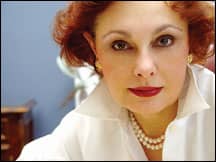Researchers propose that video games be used as a complement to physiotherapy treatments to help improve the mobility of patients who have experienced ischemic strokes.
In their study, published in the PNAS Journal, researchers from Basque Center on Cognition, Brain and Language (BCBL) in San Sebastian and the London Imperial College analyzed the architecture of brain injuries in stroke patients.
They propose a new therapeutic pathway that complements the physical treatments received by these patients with therapies to overcome attention deficit disorders, such as working with video games.
“Patients with brain injuries in attention control areas also suffer motility control problems, even when the movement required by the task is very simple,” says BCBL researcher David Soto, in a media release from FECYT – Spanish Foundation for Science and Technology.
The team explored the extent and location of brain injuries in 167 stroke patients for more than 3 years. Through a “mapping” performed with magnetic resonance, they identified the affected part and the type and size of the lesion, and analyzed the connectivity between the different areas of the brain.
Next, they subjected the patients to various motor tasks, some very simple, such as grabbing an object with force. After the tests, the researchers found that these tasks were “impaired” in those patients who had injuries in the area of the brain “involved” in attention, the release explains.
Soto notes that before this study was conducted it was thought that the control of movement and the attention control aspect were “different systems” with little relation to each other, and that the treatments enabled for the patients with cognitive injuries could not serve for those who had mobility problems. However, their research appears to suggest otherwise.
“We have to know first how our brain controls and moves to design effective therapeutic tools for stroke patients and specific therapies for each individual depending on where the injury has occurred,” he concludes.
To confirm these results, the next step will be to establish a clinical trial with patients suffering motor skills disorders due to a stroke and divide them into two groups: one of them undergoing physiotherapy treatment and the other with complementary cognitive training, per the release.
[Source(s): FECYT – Spanish Foundation for Science and Technology, Science Daily]





